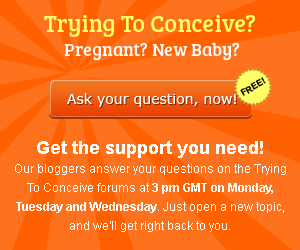Periods — they are hardly something women look forward to, but they are so important! Being intimately familiar with your menstrual cycle is beneficial for you, whether you are hoping to conceive soon or are actually trying to avoid a pregnancy. So in this post, were going to review some nifty facts about the menstrual cycle with the help of an equally nifty infographic that was created for Pregnancy Awareness Week 2013.
Periods — Who Needs Them?
Just joking. I mean who gets them? Today, girls generally start menstruating somewhere between ages 10 and 14. Some can start their monthly cycle at as early as eight years of age. This means that for those who have daughters, it six or seven is definitely not too early to start educating them about puberty and menstruation. No girls should have to be terrified at that period, because she has no idea what it is!
Young girls who have recently started menstruating are likely to have very irregular cycles. This is normal, and therefore nothing to be worried about. Still, it is a good idea for every girl who has had her first period to go for her first OBGYN checkup, to make sure she understands the basics and so that she can ask any questions she would rather not discuss with her parents. Many cycles in young girls are anovulatory, which means they dont ovulate every month.
By the time a girl has been menstruating for a few years, cycles typically start to become more predictable, and ovulation will come every month. Women are in their peak fertility years between 20 and about 35, but will continue to menstruate until their mid-forties or a little bit beyond. Your average woman has about 500 menstrual cycles throughout her life. The menopause can be a somewhat sad process for some, while others celebrate the fact that they dont have to go through monthly bleeding any more.
Stages Of The Menstrual Cycle
The infographic in this post says the menstrual cycle has three phases. Some sources prefer to include only two — the follicular and luteal phase — but ovulation is indeed such an important event that it is worth assigning it its very own phase in the cycle. Hormones that are regulated by three parts of the body play a role in the menstrual cycle. These hormones are regulated by the hypothalamus, pituitary gland, and the ovaries. Theyre estrogen, progesterone, Follicle Stimulating Hormone (FSH) and Luteinizing Hormone (LH).
The first part of the cycle, the follicular phase, is the stage in which follicles mature. One follicle starts dominating, and this will become the egg released at ovulation that month. The follicular phase starts with menstruation (which itself lasts between four and six days on average) and continues until ovulation. Ovulation lasts between 12 to 24 hours, which is when the egg is viable and can be fertilized.
As you can see from the infographic, most of the days of the follicular phase are theoretically considered fertile days. This is because you may not be sure when you ovulate, and pregnancy can result from intercourse you have up to six days before ovulation. Sperm is more durable than some give them credit for — these guys can survive for six or seven days within a womans reproductive system! The one to two days before ovulation are still considered to be the most fertile.
That means you have the highest chance of getting pregnant if you know about your most likely ovulation date before it actually arrives. For this reason, an ovulation calendar is a wonderful addition to ovulation tests.
After ovulation has passed, the hormone progesterone will dominate. That fact comes with a number of indications that you can follow. The luteal phase of the cycle is noticeable because your temperature actually goes up about half a degree. Cervical mucus is another indication that you have ovulated, and this one is even easier to track than your temperature. Luteal phase cervical mucus is thick, a creamy white, and not slippery like ovulatory cervical mucus.
I hope youve enjoyed this brief review of facts surrounding the menstrual cycle, and that you can use these bits of knowledge in your quest to conceive or to avoid pregnancy. Some women rely solely on nature (the information their cycle gives them) to avoid pregnancy. If this is something that interests you, read about Natural Family Planning.

